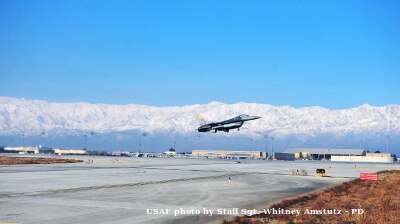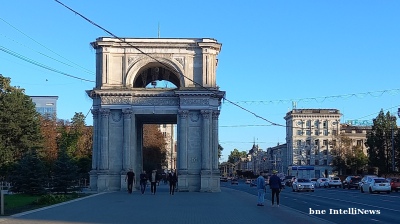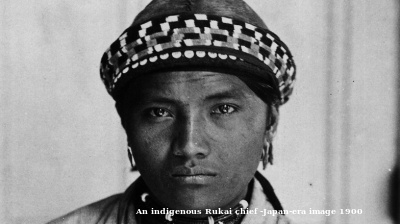In Taiwan, nationality is meant to bind citizens behind a common cause. Yet on closer inspection, the binding holding this land off the east coast of the Asian mainland together is more tenuous than trustworthy, while at the same time being outright discriminatory in parts.
Native born Taiwanese are permitted to hold multiple nationalities with little consequence, while foreigners who wish to become citizens, having paid their dues to the country, and more often than not higher taxes than the locals while living in the country for a pre-determined period, must pay an unfairly steep price: the renunciation of their original nationality.
This asymmetry raises questions not only of equity in a land that prides itself on being open and welcoming, but also of national identity and loyalty.
At the heart of the contradiction is Taiwan’s Nationality Act. Under Article 9, most foreign nationals seeking to naturalise are required to “provide a certificate of loss of original nationality” within one year of approval.
The same Act and same Article adds: “A foreign national who fails to provide a certificate of loss of original nationality within the prescribed period shall be subject to revocation of permission for naturalisation.”
By contrast, those deemed Taiwanese by birth - including those who later acquire another passport through family links or having lived overseas for a given qualifying period - are allowed to retain their Taiwanese nationality with no questions asked.
In recent decades this has seen tens, if not hundreds of thousands of pregnant Taiwanese mothers make their way to the US or elsewhere to give birth, thereby guaranteeing dual nationality for their offspring.
So called ‘anchor babies’ aside, multiple private groups and even some local media have previously noted that the law allowing one group but not another to hold multiple passports, effectively creates what is a two-tier system: one for those born Taiwanese, and another for those who wish to join.
At best this is exclusionary. At worst, it is outright discriminatory.
Defence of the indefensible
Taiwanese officials have repeatedly defended this dual approach, however.
When a civil society group called Crossroads submitted a petition with more than 5,000 signatures of non-Taiwanese residents and locals alike, calling for foreigners resident in Taiwan for over five years to be treated equally and allowed to naturalise without renouncing their citizenship, the government soon after rejected the proposal.
As was reported by the local English media Taipei Times, and Chinese language TV stations at the time, officials insisted that foreigners should not expect the same privileges as those born Taiwanese.
Instead, the government of Taiwan argued that the policy as it still stands, reflects the “principle of a single-nationality system,” citing concerns over loyalty, national security, and limited resources. It is a somewhat bizarre form of reasoning coming from a government headed by the ‘Democratic Progressive’ Party (DPP) of President William Lai, that is itself so desperate to be treated equally on the world stage – efforts it must be said the overwhelming majority of those seeking Taiwanese nationality would support.
Such a discriminatory modus operandi by the Taiwanese government as is demonstrated under the current government has its limits though, or at least should have in a truly ‘democratic and progressive’ society.
Prejudice entrenched
As Taiwan stands, this refusal to treat non-Taiwanese fairly when they apply for nationality, highlights the inequality at the core of Taiwan’s nationality rules. With Taiwanese nationals who take up a second citizenship abroad facing no automatic sanction, foreign residents who have lived in Taiwan for years or even decades are routinely put through the painful process of throwing away the nationality of their birth to be considered equals.
True, the government has introduced narrow carve-outs to benefit those they deem high profile individuals – of late Catholic missionaries and at least one basketball player have made headlines to this end - but between 2016 when the DPP came to power, and 2023, relatively few qualified for the exemptions.
For the vast majority of non-Taiwanese opting to naturalise though, the choice remains stark: surrender one nationality to acquire another - even if those you live and work alongside need not do the same if born here.
The human cost
Renunciation of nationality – anywhere in the world - is not a trivial matter. It can entail fees, bureaucratic hurdles, loss of property or inheritance rights in one’s home country, and, in some cases, the risk of statelessness in a worst case scenario.
So why does the government of Taiwan allow this practice to continue?
As a nation living under daily threat from China, Taiwan under the DPP is hardly in a position to be cavalier about excluding talent.
With one of the fastest ageing populations in the world and a plummeting birth rate, the island already faces acute demographic pressures. Businesses are already struggling with labour shortages and a growing reliance on migrant workers.
As such, by insisting on renunciation, if anything Taiwan discourages the skilled foreigners it so often claims it wants to attract from coming to the country long-term; those who might otherwise one day naturalise and contribute economically to the country while putting down permanent roots.
Politics of loyalty
Behind the rigidity lies symbolism.
For the government in Taipei, the renunciation requirement embodies an assertion of loyalty at a time when Taiwan’s own sovereignty is under constant challenge from Beijing - a time in which even members of its own military are regularly found to be passing secrets to Beijing.
Yet the symbolism cuts both ways.
The duplicity of allowing Taiwanese nationals to hold multiple passports while demanding that foreigners shed theirs undermines claims of fairness and inclusion in a country that cannot survive without the international community in at least some way helping to fend off China.
Loyalty, critics argue, is not best demonstrated by paperwork but by conduct. But the current rules risk alienating those who have chosen Taiwan as home, those who would defend Taiwan if called upon to do so, thereby leaving them as permanent outsiders in the nation they choose to support.
As Taiwan stands, its nationality law reflects a divisive contradiction and one wrapped in the stigma of discrimination.
And in an era when Taiwan needs friends, talent and demographic renewal more than ever, and more than most countries around the world, such a blinkered view on nationality may ultimately prove more self-defeating than protective.
Features

Iranian President could talk with Trump at UN
Iranian political figures urge bold diplomacy with President Pezeshkian's upcoming New York trip to the United Nations.

Trump eyes Bagram return, with China in his sights
In the years it was operational, 14 nations operated at, or through Bagram. In addition to the US, these included UK forces and elements from France, Germany, South Korea and more.

$23bn windfall for Kazakhstan as Beijing shifts up a gear on New Silk Road
Resource-rich Central Asian country emerges as a standout destination for Chinese investment.

US cancels Chabahar port sanctions exemption in blow to India's regional strategy
US terminates Iran Chabahar port sanctions waiver from September 29, jeopardising India's strategic trade operations and regional connectivity initiatives through the key facility.




